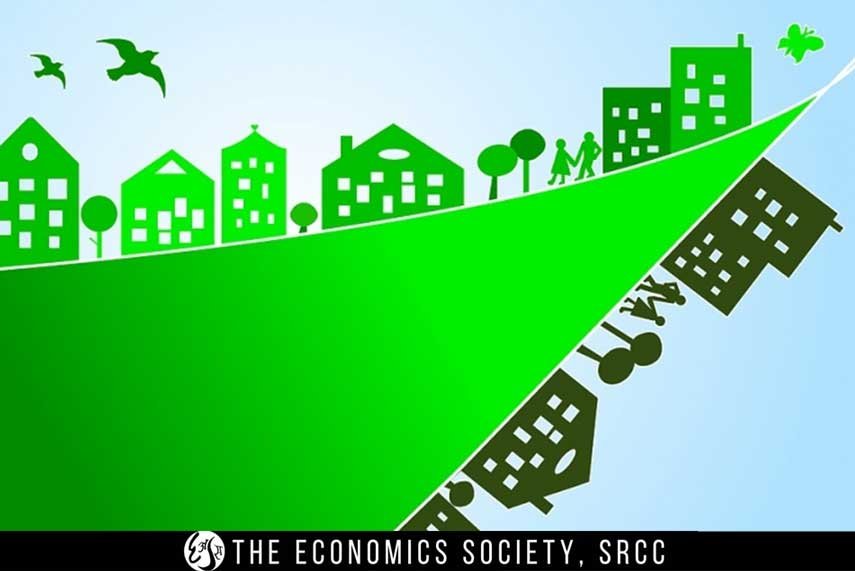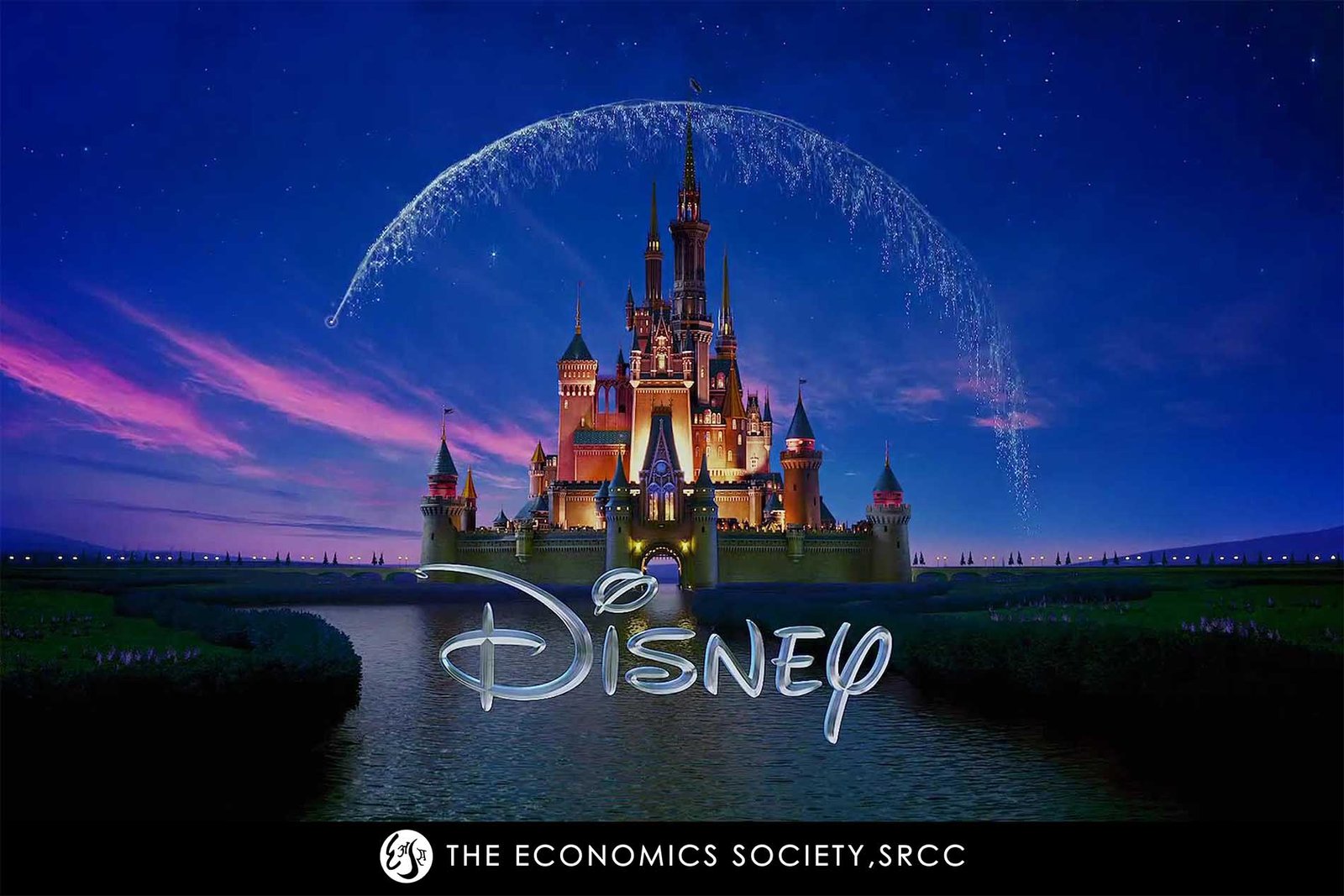
Published in:
Business And Finance
Triple Bottom Line

Are politicians keen about achieving social cohesion, which is conspicuous by its absence? A new fad, in this connection, is the triple bottom line, which is about social and environmental sustainability. Environmental well being or ‘green living’ is a fairly familiar bandwagon. What is rather unfamiliar is the new bandwagon of achieving social sustainability by way of avoiding labour abuse through ensuring labour rights/human rights. The corporate sector is now asked by politicians to do ‘ethical living’ by becoming responsible and focusing its attention on simultaneously achieving ‘the triple bottom line’—people, planet and profit!
When it comes to debating the choice between ‘race to the top’ (high road) and ‘race to the bottom’ (low road), there is no dearth of rhetoric on the part of political orators such as Dr. Barrack Obama. He had once harangued thus, which was unbeatably impressive, “ We shouldn’t be in a race to the bottom, where we try to offer the cheapest labour and the worst pollution standards. America should be in a race to the top. And I believe we can win that race. What we can’t do—what I will not do—is let this economic crisis be used as an excuse to wipe out the basic protection that Americans have counted upon for decades. I reject the idea that we need to ask people to choose between their jobs and their safety. I reject the argument that says – for the economy to grow, we have to roll back protections that ban hidden fees by credit card companies, or rules that keep our kids from being exposed to mercury, or laws that prevent the health insurance industry from shortchanging patients. I reject the idea that we have to strip away collective bargaining rights to compete in a global economy. In fact, the larger notion that the only thing we can do to restore prosperity is just dismantle the government, refund everybody’s money, and let everyone write their own rules, and tell everyone they’re on their own—that’s not who we are. That’s not the story of America.”
There is no dearth of such rhetoric in India either. In fact, there is better rhetoric, if not better oratorical skills. On March 25, 2007, the then Prime Minister of India, Dr. Manmohan Singh, delivered a similar landmark speech on “Ten Point Social Charter” at the Annual Summit of the Confederation of Indian Industry. It was indeed a bit of a long saintly speech—like God, who is put on sale by his own children, conscientizing his erring children about “eternal human values and holistic development”. Dr. Singh had urged the Indian businessmen to “have healthy respect for workers and invest in their welfare. Unless workers feel they are cared for at work, we can never evolve a national consensus in favour of much-needed more flexible labour laws aimed at ensuring that our firms remain globally competitive”. The UCLA Professor of Communication Studies and Policy Studies, Tim Plate, who had witnessed this melodrama or rather kind of cinematic “tamasha” had this, inter alia, to say: “In India, especially, a blind man can see what is happening. The poor are to be found almost everywhere you go, even and especially in this mammoth nation’s capital city. Fortunately, Manmohan Singh has anything but deficient eyesight. Educated at Punjab and Oxford Universities in economics, he senses some kind of gathering storm—a kind of global political warming in the sociological rather than the meteorological sense…The turban-topped economist asked his audience (and by implication the world) whether self-satisfaction about unprecedented wealth, as is being enjoyed in India itself these days, is wholly justified in the oppressive presence of diminished equality. All but begging the business community to show more social responsibility by investing in and caring for workers as much as profits, he proposed that companies put a lid on excessive and odious compensation and benefits for top executives, especially when it was obvious that masses of people are near-starving in the streets.”
The Ten Point Social Charter of Dr. Manmohan Singh was later translated into an official document about social and environmental sustainability by the Ministry of Corporate Affairs, with inputs from the Indian Institute of Corporate Affairs.
How far the power and glory of such guidelines/rhetoric in countries such as the United States of America and India influences the grave ground realities about predatory exploitation of labour and nature is a moot question. Some academics outside and inside India are now chipping in to find out how governments, private sector and civil society can come together to translate such rhetoric into reality even as regulated capitalism is replaced by neoliberal capitalism.
In 2010, ISO 26000 emerged as an ISO standard giving guidance on ‘social responsibility’. It was intended for use by organisations of all types, in both public and private sectors, in developed countries, developing countries and in the economies in transition (from socialism to capitalism). It was supposed to assist them in their efforts to operate in the socially responsible manner that society increasingly demands. However, its impotency should be noted given that it contained voluntary guidance, not requirements, and therefore it was not for use as a certification standard like ISO 9001 or ISO 14001.
So, we can safely conclude that these guidelines on social responsibility or the utterances as above by politicians cannot bring about ‘global salvationism’ by way of a thaw in the otherwise frozen employers’ relations with workers and/or address the enormous environmental crisis under neoliberalism. They can be taken as an “ultra super propaganda of double-think/double-speak to the max”—all manufactured for ratings, public consumption and the media manipulation in the nation and the world.
By contrast, the environment action group called Kalpavriksh—a non-profit organization working on environmental and social issues at local, national and global levels, believes that “a country can develop meaningfully only when ecological sustainability and social equity are guaranteed”. Ashish Kothari of this organization had evaluated India’s political heavyweights in regard to how they deal with the environment and livelihoods in their poll manifestos and came to the conclusion that there is only compulsive obsession with GDP growth and no palpable, real concern and commitment for natural environment and the people dependent on it in terms of farmers, forest-dwellers, fishers, and craftspersons, and their rights and democratic empowerment. “The BJP’s overall vision of livelihoods and ecology does not exist. Its ecological ignorance is breathtaking, and its cavalier approach to the livelihoods of nature-based communities is callous.” The BJP has indulged in tragicomedy like this: “We have ensured speed and effectiveness in issuing forest and environmental clearances for eligible projects due to which we have added around 9000 sq. kms to the forest cover of the country. We are committed to maintaining this pace through the adoption of cleaner practices to make our nation a greener country.” As Kothari points out, this is either ecological ignorance or deliberate neglect at its worst. “Environmental clearances” is a euphemism for allowing forests to be destroyed for mining, dams, expressways, industries and the like. Even a schoolchild can tell the BJP that no plantation can replace a natural forest by way of compensatory afforestation.
Annavajhula J.C. Bose, PhD Department of Economics, SRCC
References
1. Ashish Kothari.2019. Sustaining India: Is There Anything to Choose Between BJP and Congress? The Wire. April 19. 2. Full thesis in pdf-Gurgaon workers news-Yumpu https://gurgaonworkersnews.files.wordpress.com/2012/09/full-thesis-in-pdf.pdf
When it comes to debating the choice between ‘race to the top’ (high road) and ‘race to the bottom’ (low road), there is no dearth of rhetoric on the part of political orators such as Dr. Barrack Obama. He had once harangued thus, which was unbeatably impressive, “ We shouldn’t be in a race to the bottom, where we try to offer the cheapest labour and the worst pollution standards. America should be in a race to the top. And I believe we can win that race. What we can’t do—what I will not do—is let this economic crisis be used as an excuse to wipe out the basic protection that Americans have counted upon for decades. I reject the idea that we need to ask people to choose between their jobs and their safety. I reject the argument that says – for the economy to grow, we have to roll back protections that ban hidden fees by credit card companies, or rules that keep our kids from being exposed to mercury, or laws that prevent the health insurance industry from shortchanging patients. I reject the idea that we have to strip away collective bargaining rights to compete in a global economy. In fact, the larger notion that the only thing we can do to restore prosperity is just dismantle the government, refund everybody’s money, and let everyone write their own rules, and tell everyone they’re on their own—that’s not who we are. That’s not the story of America.”
There is no dearth of such rhetoric in India either. In fact, there is better rhetoric, if not better oratorical skills. On March 25, 2007, the then Prime Minister of India, Dr. Manmohan Singh, delivered a similar landmark speech on “Ten Point Social Charter” at the Annual Summit of the Confederation of Indian Industry. It was indeed a bit of a long saintly speech—like God, who is put on sale by his own children, conscientizing his erring children about “eternal human values and holistic development”. Dr. Singh had urged the Indian businessmen to “have healthy respect for workers and invest in their welfare. Unless workers feel they are cared for at work, we can never evolve a national consensus in favour of much-needed more flexible labour laws aimed at ensuring that our firms remain globally competitive”. The UCLA Professor of Communication Studies and Policy Studies, Tim Plate, who had witnessed this melodrama or rather kind of cinematic “tamasha” had this, inter alia, to say: “In India, especially, a blind man can see what is happening. The poor are to be found almost everywhere you go, even and especially in this mammoth nation’s capital city. Fortunately, Manmohan Singh has anything but deficient eyesight. Educated at Punjab and Oxford Universities in economics, he senses some kind of gathering storm—a kind of global political warming in the sociological rather than the meteorological sense…The turban-topped economist asked his audience (and by implication the world) whether self-satisfaction about unprecedented wealth, as is being enjoyed in India itself these days, is wholly justified in the oppressive presence of diminished equality. All but begging the business community to show more social responsibility by investing in and caring for workers as much as profits, he proposed that companies put a lid on excessive and odious compensation and benefits for top executives, especially when it was obvious that masses of people are near-starving in the streets.”
The Ten Point Social Charter of Dr. Manmohan Singh was later translated into an official document about social and environmental sustainability by the Ministry of Corporate Affairs, with inputs from the Indian Institute of Corporate Affairs.
How far the power and glory of such guidelines/rhetoric in countries such as the United States of America and India influences the grave ground realities about predatory exploitation of labour and nature is a moot question. Some academics outside and inside India are now chipping in to find out how governments, private sector and civil society can come together to translate such rhetoric into reality even as regulated capitalism is replaced by neoliberal capitalism.
In 2010, ISO 26000 emerged as an ISO standard giving guidance on ‘social responsibility’. It was intended for use by organisations of all types, in both public and private sectors, in developed countries, developing countries and in the economies in transition (from socialism to capitalism). It was supposed to assist them in their efforts to operate in the socially responsible manner that society increasingly demands. However, its impotency should be noted given that it contained voluntary guidance, not requirements, and therefore it was not for use as a certification standard like ISO 9001 or ISO 14001.
So, we can safely conclude that these guidelines on social responsibility or the utterances as above by politicians cannot bring about ‘global salvationism’ by way of a thaw in the otherwise frozen employers’ relations with workers and/or address the enormous environmental crisis under neoliberalism. They can be taken as an “ultra super propaganda of double-think/double-speak to the max”—all manufactured for ratings, public consumption and the media manipulation in the nation and the world.
By contrast, the environment action group called Kalpavriksh—a non-profit organization working on environmental and social issues at local, national and global levels, believes that “a country can develop meaningfully only when ecological sustainability and social equity are guaranteed”. Ashish Kothari of this organization had evaluated India’s political heavyweights in regard to how they deal with the environment and livelihoods in their poll manifestos and came to the conclusion that there is only compulsive obsession with GDP growth and no palpable, real concern and commitment for natural environment and the people dependent on it in terms of farmers, forest-dwellers, fishers, and craftspersons, and their rights and democratic empowerment. “The BJP’s overall vision of livelihoods and ecology does not exist. Its ecological ignorance is breathtaking, and its cavalier approach to the livelihoods of nature-based communities is callous.” The BJP has indulged in tragicomedy like this: “We have ensured speed and effectiveness in issuing forest and environmental clearances for eligible projects due to which we have added around 9000 sq. kms to the forest cover of the country. We are committed to maintaining this pace through the adoption of cleaner practices to make our nation a greener country.” As Kothari points out, this is either ecological ignorance or deliberate neglect at its worst. “Environmental clearances” is a euphemism for allowing forests to be destroyed for mining, dams, expressways, industries and the like. Even a schoolchild can tell the BJP that no plantation can replace a natural forest by way of compensatory afforestation.
Annavajhula J.C. Bose, PhD Department of Economics, SRCC
References
1. Ashish Kothari.2019. Sustaining India: Is There Anything to Choose Between BJP and Congress? The Wire. April 19. 2. Full thesis in pdf-Gurgaon workers news-Yumpu https://gurgaonworkersnews.files.wordpress.com/2012/09/full-thesis-in-pdf.pdf


